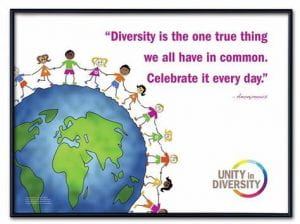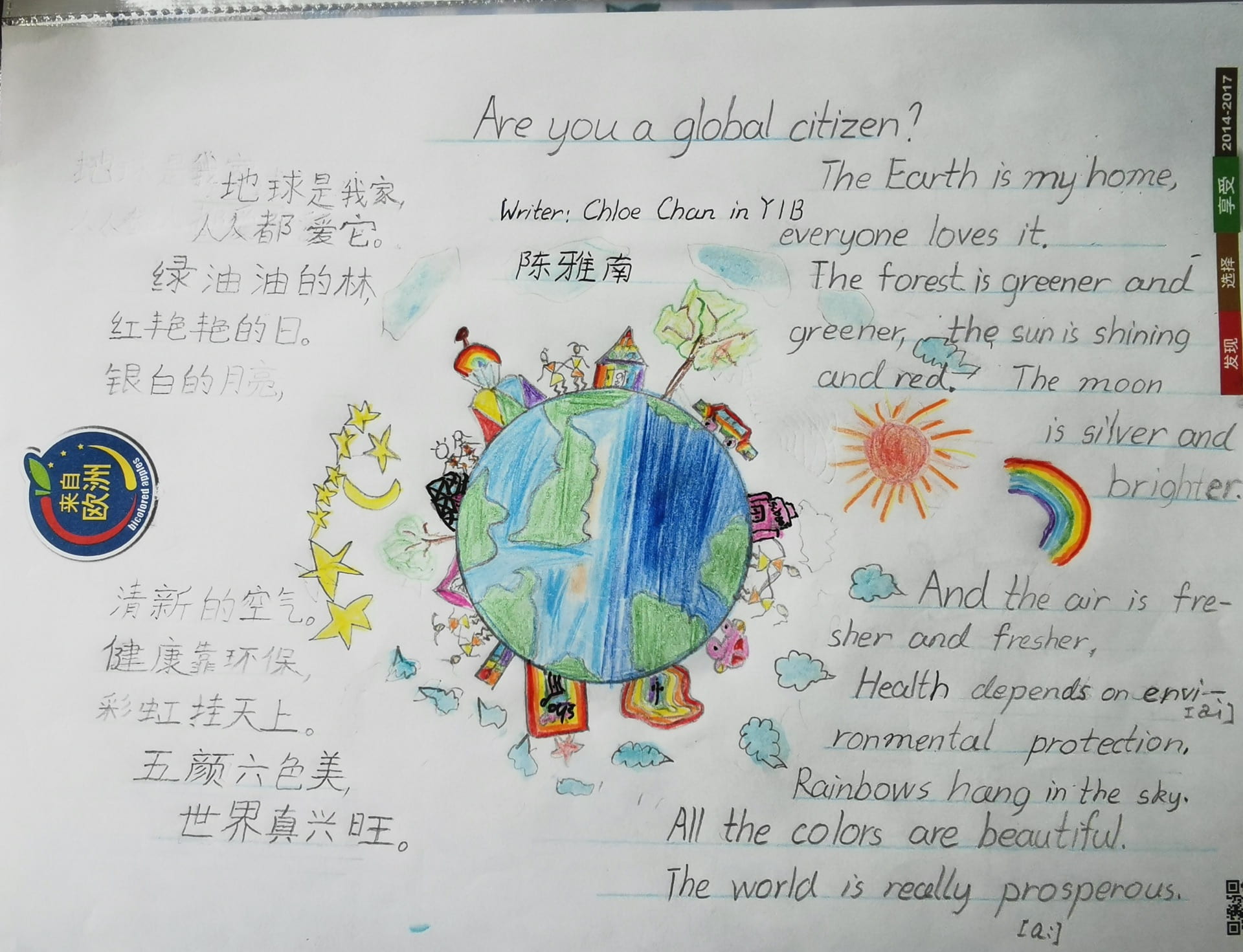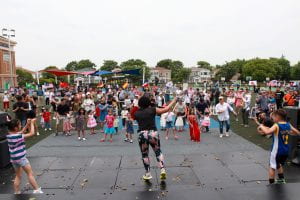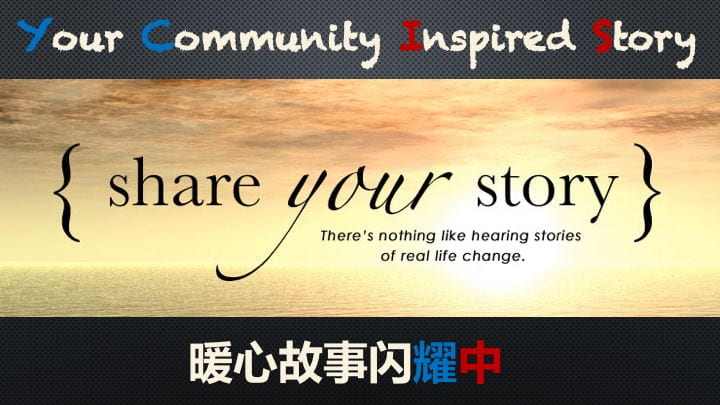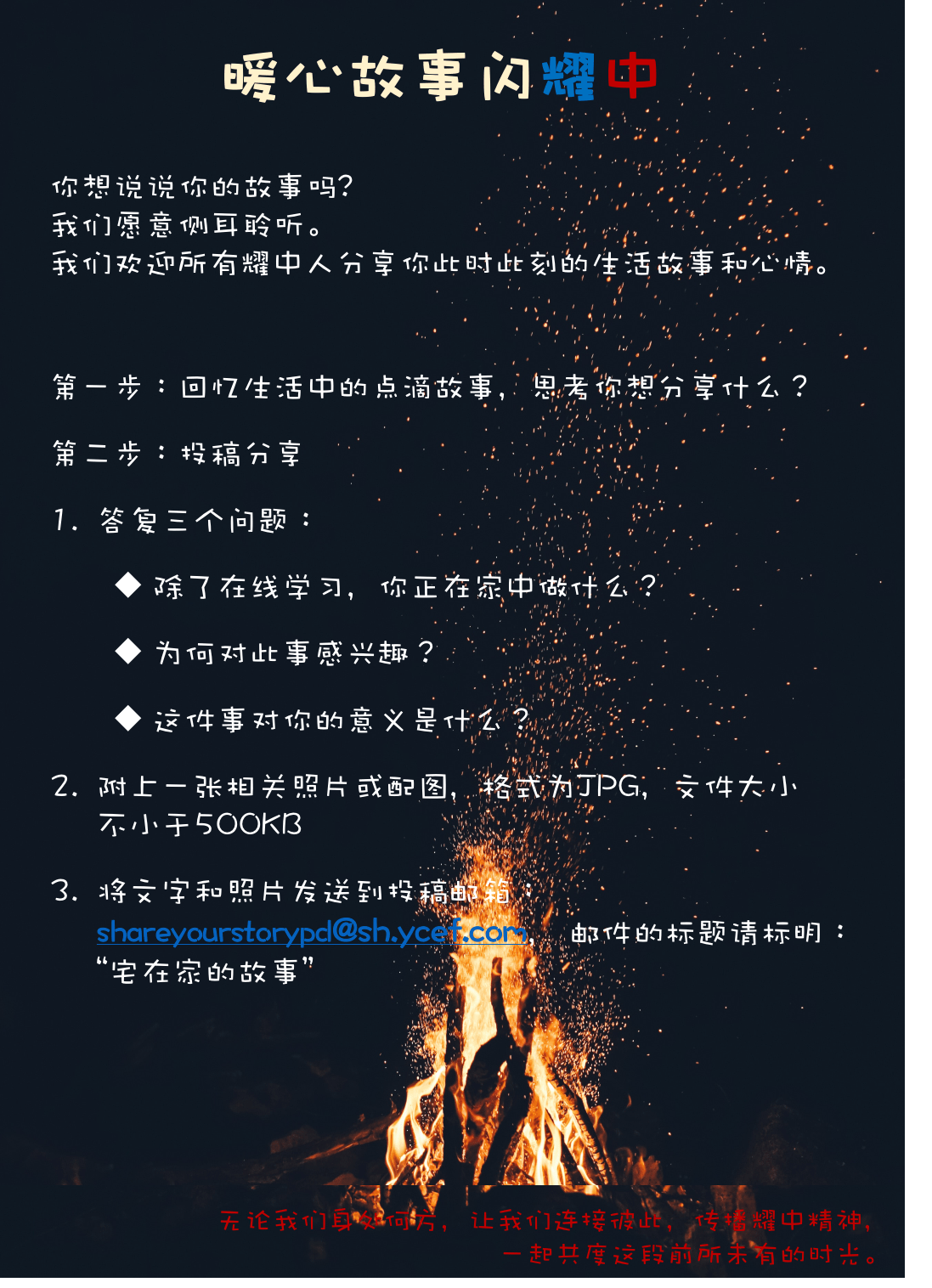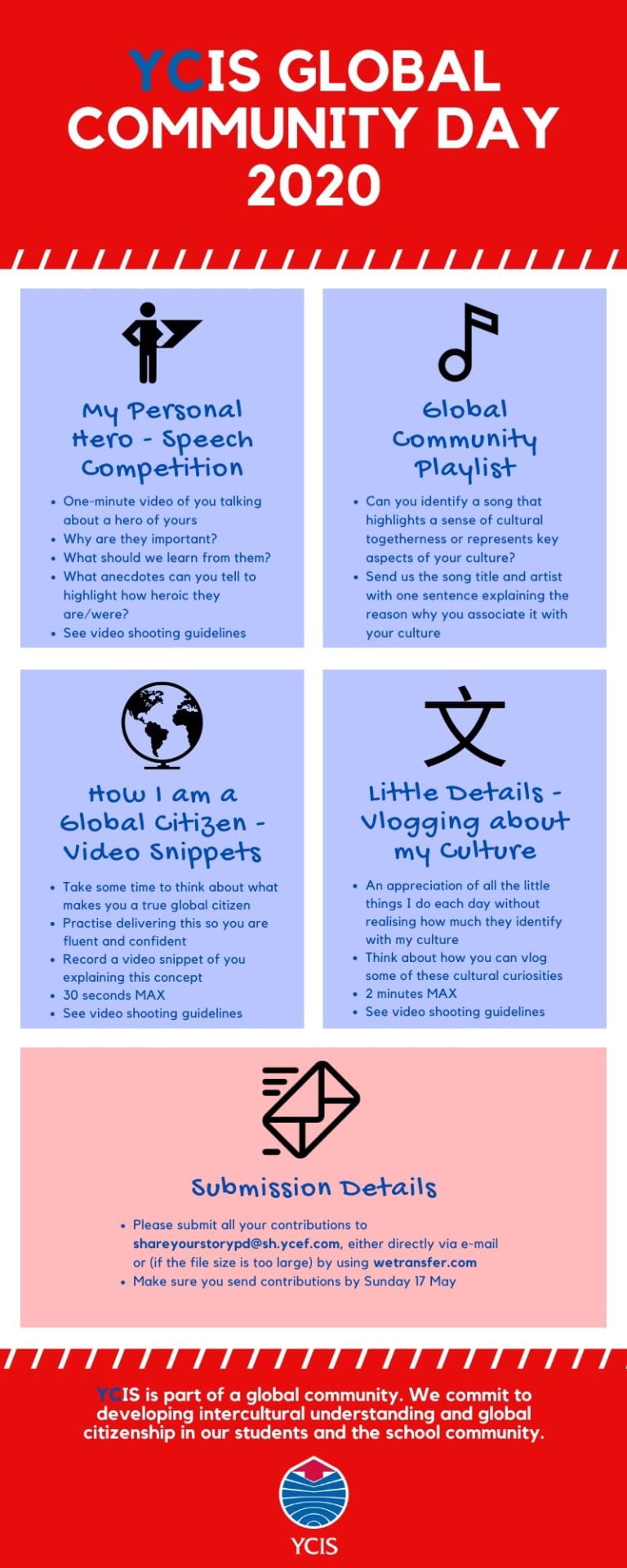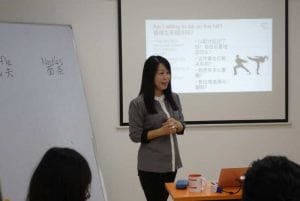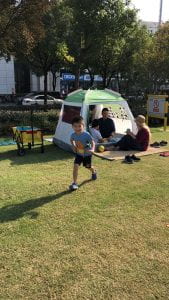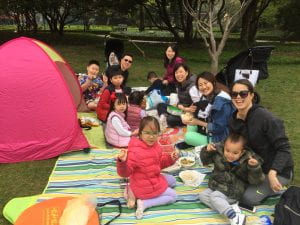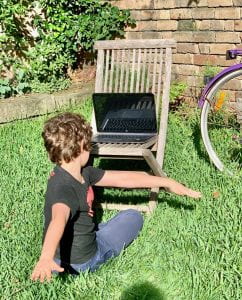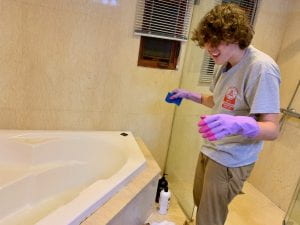At YCIS Shanghai, the health, safety, and well-being of all students, staff, and community members are always at the forefront of everything the school does. Consistent and stringent health and safety protocols are maintained across all our school campuses to ensure everyone can learn, work, and develop in the best possible environment. In response to the current COVID-19 epidemic, the school has further ramped up these measures to ensure we are meeting all government requirements, ready for school reopening. After the announcement on Thursday, April 9 by the Shanghai Epidemic Prevention and Control Group that schools are due to reopen soon, we are pleased to share the efforts that are already in place on our five campuses across the city.
Since they returned to campus, Cleaning and Security teams have been working tirelessly to ensure cleanliness and prevention while students and staff have been away. This means all visitors to campus during closure need to pass through the initial security screening.
Steps for Entering Campus
All visitors must:
- Present their city health QR code upon arrival at the campus (only those with ‘Green’ codes may enter);
- Take a temperature test;
- Have the soles of their shoes disinfected;
- Show valid ID and register;
- Complete a health declaration form;
- Take all necessary personal health precautions, including wearing a mask, goggles or lenses, and disinfecting hands.
- Any vehicles entering campus will also have their wheels sprayed with disinfectant, as well as their drivers checked as above.
While the campuses have been closed, the cleaning teams have worked to ensure all areas of the school for working, learning, eating, relaxing, and playing are spotless and ready for use again. This includes daily ventilation, deep cleaning, and disinfection of everything inside the campus from public areas, public walkways, classrooms, offices, cafeterias, kitchens, auditoriums, gyms, and specialist rooms (science labs, theatre, dance studios, etc.), to cushions and carpets, elevators, door handles, restroom facilities, stairs, and garbage rooms, as well as outside cleaning, including sandbox and equipment disinfection.
To prepare for this, all cleaning team members have completed trainings and tests, including site operation training, cleaning and epidemic prevention training (from basic knowledge of cleaning work to specific epidemic prevention knowledge), disinfection portion ratio, disinfection frequency, and more, as well as daily pre-job training before each shift starts.
Any staff who have needed to visit campuses while closed need to comply with strict regulations. Before returning to campus, all staff should report to the Head of Supporting Division and inform Security staff in advance, submitting and declaring their planned school hours. All staff returning to school must comply with the current outbreak prevention and control regulations of the campuses and truthfully provide information such as residence, recent travel, and quarantine and health status. Those returning to the city, whether local or otherwise, need to observe the 14-day quarantine. Anyone who fails to provide relevant certificates and health status information, or to sign the commitment letter of quarantine observation/health observation, will not be allowed to enter school’s campuses. All staff working from home have also been submitting daily health declarations, including twice-daily temperature readings.
 Our campuses are ready for students and staff to return, and new equipment and spaces have been added in response to the virus. The school has added ozone disinfection cabinets to the five campus libraries, and each campus has added temporary quarantine rooms. Furthermore, all five campuses are equipped with thermal sensing temperature measuring equipment at their entrances. There is also an increased stock level of epidemic prevention materials and the school has prepared an epidemic protection kit for each staff member for when they are back at school. The following steps are the improved requirements for cleaning and disinfection:
Our campuses are ready for students and staff to return, and new equipment and spaces have been added in response to the virus. The school has added ozone disinfection cabinets to the five campus libraries, and each campus has added temporary quarantine rooms. Furthermore, all five campuses are equipped with thermal sensing temperature measuring equipment at their entrances. There is also an increased stock level of epidemic prevention materials and the school has prepared an epidemic protection kit for each staff member for when they are back at school. The following steps are the improved requirements for cleaning and disinfection:
Improved Cleaning Requirements
- Thorough disinfection three times a day, before additional comprehensive deep cleaning and disinfection in the evening;
- Regular classroom disinfection and ventilation between classes;
- Disinfection mats at the school gate and the entrance of the teaching buildings;
- Disinfection of handles and elevators in public places every 2 hours. It is recommended not to directly touch elevator buttons;
- Disinfection of air conditioning and fresh air system (no air conditioning during the epidemic);
- Reduction of the density of seats in the dining area and increased spacing between the dining table to ensure the dining safety of students and staff.
From the very beginning of the outbreak back in January to now, YCIS has taken this situation with the utmost seriousness to make sure all of our students, staff, and community members are protected. We were so pleased to be informed this week that the Shanghai authorities have allowed us to open from next week for our Upper Secondary students. We look forward to Year 5-9 students returning on May 18.
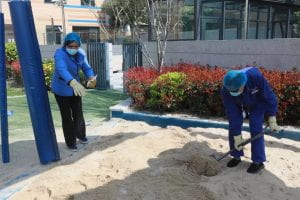
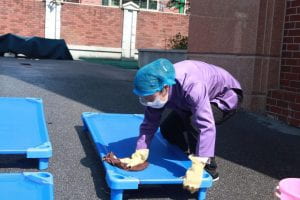

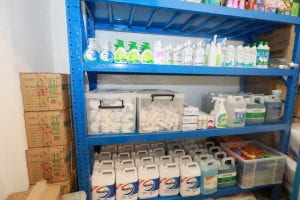
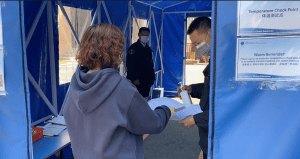
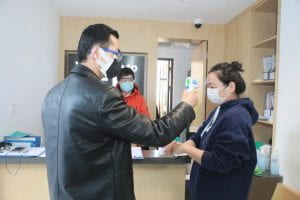
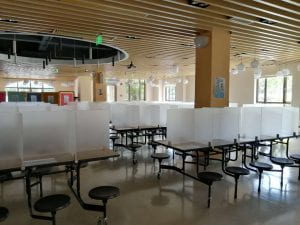
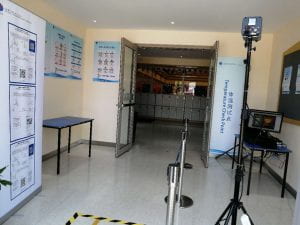


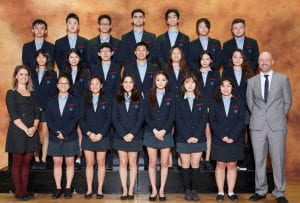
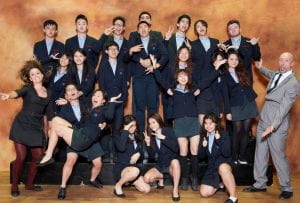
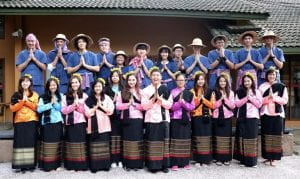
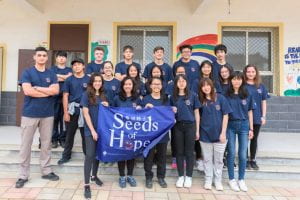

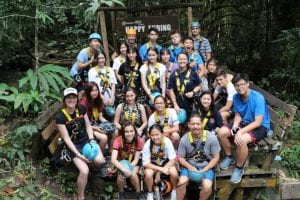

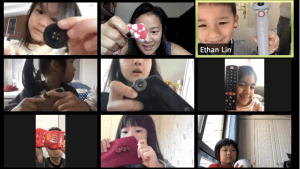
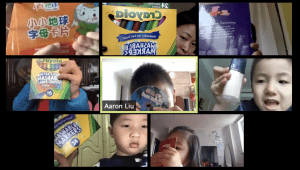
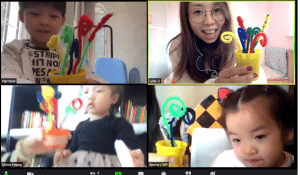
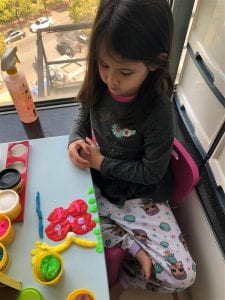

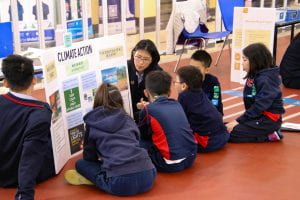
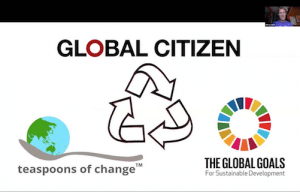
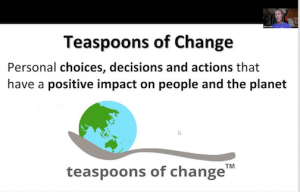

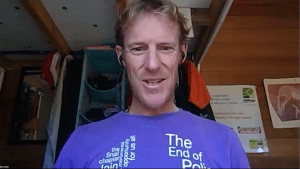
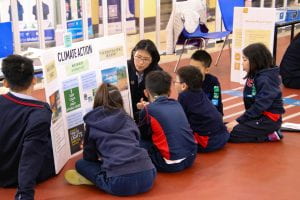
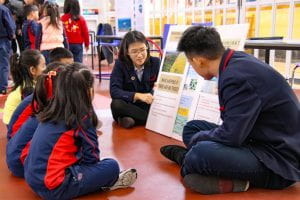

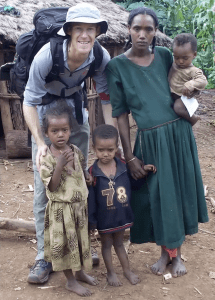
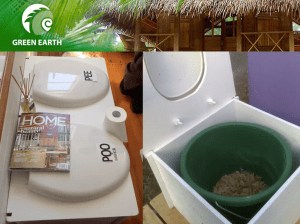
 Everyone is unique. Everyone has a unique way to perceive and interpret the world in which we live. No matter our age, gender, cultural and social background, we all have a special story to share regarding how we have lived and experienced this unprecedented worldwide pandemic situation.
Everyone is unique. Everyone has a unique way to perceive and interpret the world in which we live. No matter our age, gender, cultural and social background, we all have a special story to share regarding how we have lived and experienced this unprecedented worldwide pandemic situation. “Unity is strength…when there is teamwork and collaboration, wonderful things can be achieved”- School leaders and teachers worked together to establish basic e-Learning structures, and class parents took the initiative to help each other by sharing e-Learning materials to overcome the technological challenges with downloading.
“Unity is strength…when there is teamwork and collaboration, wonderful things can be achieved”- School leaders and teachers worked together to establish basic e-Learning structures, and class parents took the initiative to help each other by sharing e-Learning materials to overcome the technological challenges with downloading.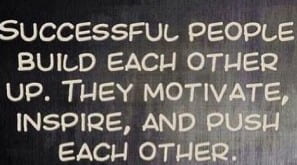
 recalibrate internal structures of communication to better serve parents & students.
recalibrate internal structures of communication to better serve parents & students.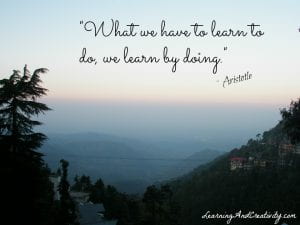


 “It takes humility to seek feedback. It takes wisdom to understand it, analyze it and appropriately act on it.” by Stephen Covey – School leaders reached out to families of younger children to check-upon their wellbeing and learning adaptation.
“It takes humility to seek feedback. It takes wisdom to understand it, analyze it and appropriately act on it.” by Stephen Covey – School leaders reached out to families of younger children to check-upon their wellbeing and learning adaptation.

